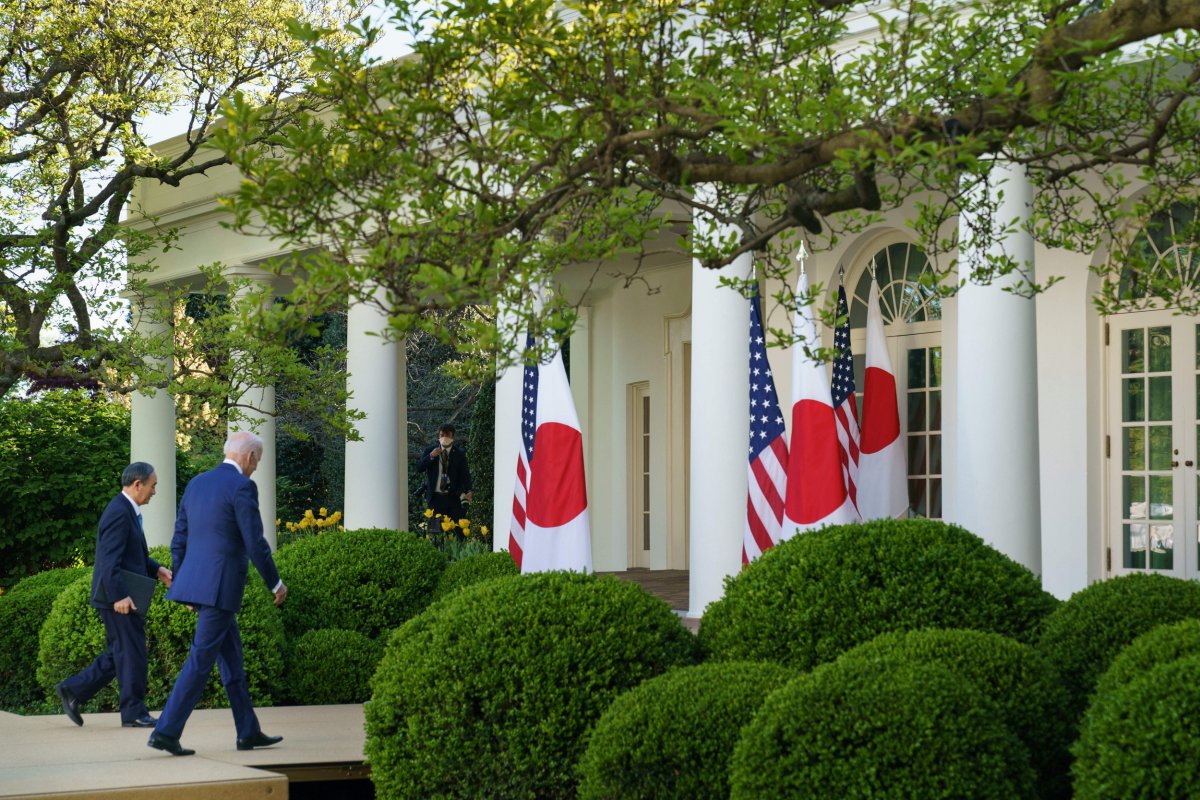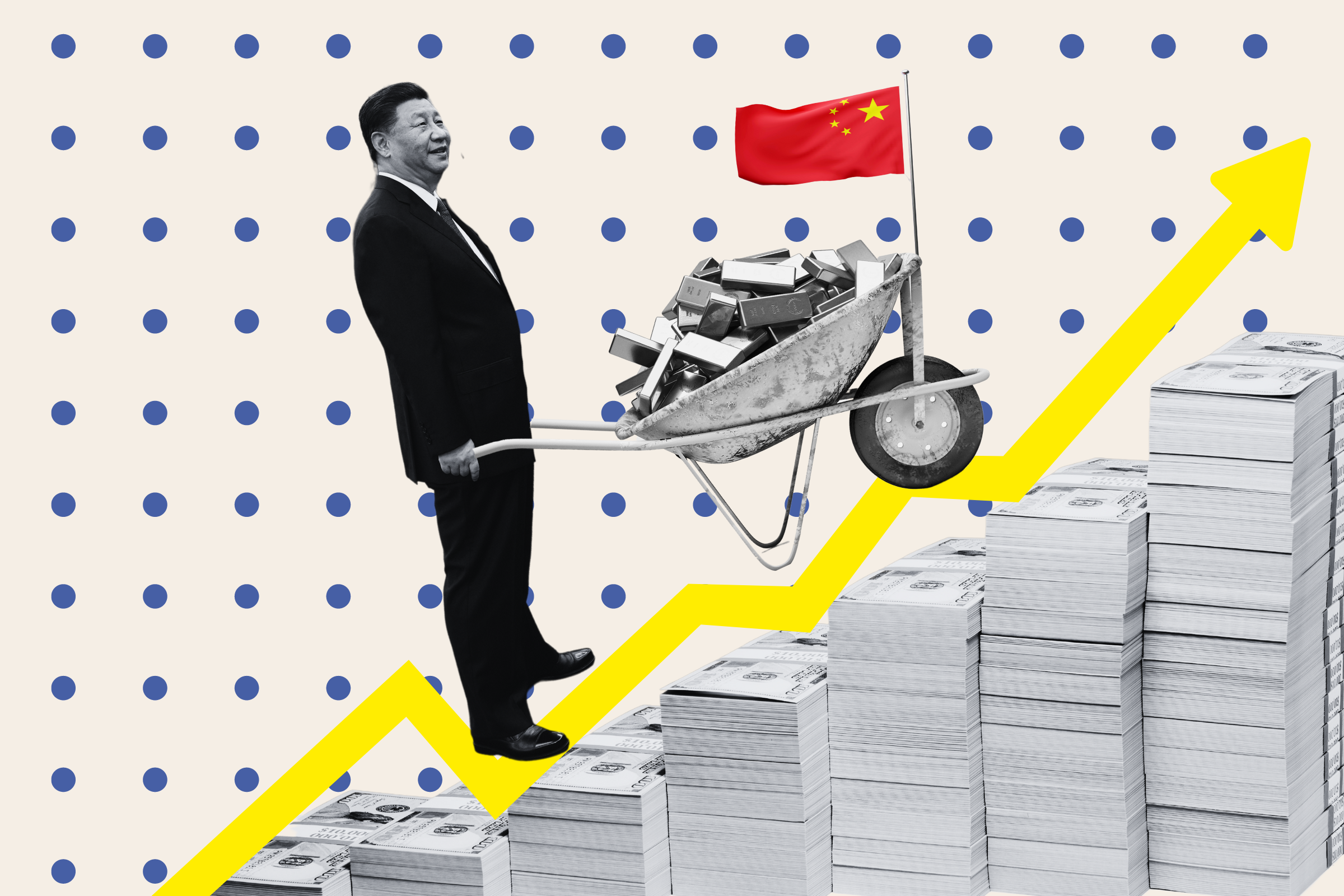Shortly after Donald Trump was elected president, Katsuyuki Kawai—the top aide to Japan's prime minister at the time—was quietly scrambling to make contact with the president elect on his boss's behalf. He reached out to anyone who might know Trump, since the Japanese were getting no cooperation from equally shell-shocked U.S. officials. Kawai's frantic efforts eventually led to a meeting in Trump Tower that carried great symbolic value, making then-prime minister Shinzo Abe the first foreign leader to visit the president elect.
For the next four years, Abe—fearing Trump might do something previously unthinkable for a U.S. president, like pulling troops out of Japan—approached Trump like a boxer afraid of being pummeled by a stronger opponent, hugging him to keep from being knocked out. And Abe largely succeeded, as the two developed a warm friendship that found them calling each other by their first names—as Ronald Reagan and Yasuhiro Nakasone had first done three decades later.
Although the recent meeting between President Joe Biden and Japanese prime minister Yoshihide Suga wasn't quite as frantically arranged as their predecessors' first encounter, it was equally significant. Once again Japan cemented its special relationship via the new U.S. president's first meeting with a foreign leader.
Japanese leaders use the powerful symbolism of such meetings to showcase to nations like China that the U.S. commitment to defend Japan is unchanged, despite the wild fluctuations that result when leaders as different as Obama, Trump and Biden succeed one another. It's diplomatic speak for Japan telling its aggressive neighbors: "don't even think about messing with us—look how important we are to the United States."
While Reagan and Nakasone and Trump and Abe were outsized, once-in-a-generation leaders, Biden and Suga are both longtime government bureaucrats who have the look of caretakers about them. They both know foreign policy well—far better than their predecessors did—but considering his age and his ambitious vice president, Biden will likely serve only one term, while Suga, with no strong lock on power and few powerful successors in the wings, will likely be the first of three or four prime ministers to serve a couple of years each before another powerful leader like Nakasone or Abe arrives on the scene.

At their meeting, Biden and Suga were able to trade some important and mutually beneficial diplomatic wins. For instance, the U.S. publicly stated that the disputed Senkaku Islands—currently governed by Japan but claimed by both Taiwan and China—would indeed be covered by the U.S.-Japan security treaty, and a specific mention of the U.S. and Japan's interest in keeping the Taiwan strait open and free of Chinese aggression. The latter was significant because it was the first time Taiwan had been mentioned in such a communique since 1967.
The Suga-Biden meeting took place just as Japan was preparing to issue a new COVID-19 emergency warning in Tokyo and three other prefectures. To be sure, Japanese lockdowns are vastly different from American ones, as they are primarily focused on ensuring that dining establishments are closed at 8pm or so, but this particular emergency is important—its success or failure will determine whether the Olympics will go ahead as planned or be scrapped.
For the average Japanese, life is continuing in a kind of new normal. Public transportation, the primary means of travel, continues with windows often open and capacity at 60 percent or so. Transmission on public transit is said to rarely occur because of strict mask-wearing and an understanding that no talking of any kind is to take place, something that rarely happens anyway.
Sometime between now and October 22nd, the members of Japan's lower house will face an election and Suga will be judged on how his party performs. Although the prime minister now has a successful U.S.-Japan summit under his belt, in Japan as elsewhere, all politics is local. The Suga administration will rise or fall on whether it was able to save the Olympics and prevent new waves of coronavirus from overtaking the country's medical system as it has in India.
While the Japanese didn't seem to mind Trump's brashness—seeing it as a powerful psychological bulwark against Chinese aggression—there's little doubt that a return to a more ordinary U.S.-Japan relationship is also welcome. With strong assurances from President Biden on the Senkaku Islands and an explicit warning on the matter of Taiwan, Japan can focus on challenging domestic issues like the Olympics and the pandemic, both of which—if handled deftly by Prime Minister Suga—may extend his tenure beyond caretaker status.
Mark Joseph is a Newsweek Senior columnist and the producer of the documentary film, Japan: Searching For The Dream
The views expressed in this article are the writer's own.
Uncommon Knowledge
Newsweek is committed to challenging conventional wisdom and finding connections in the search for common ground.
Newsweek is committed to challenging conventional wisdom and finding connections in the search for common ground.
About the writer
To read how Newsweek uses AI as a newsroom tool, Click here.








